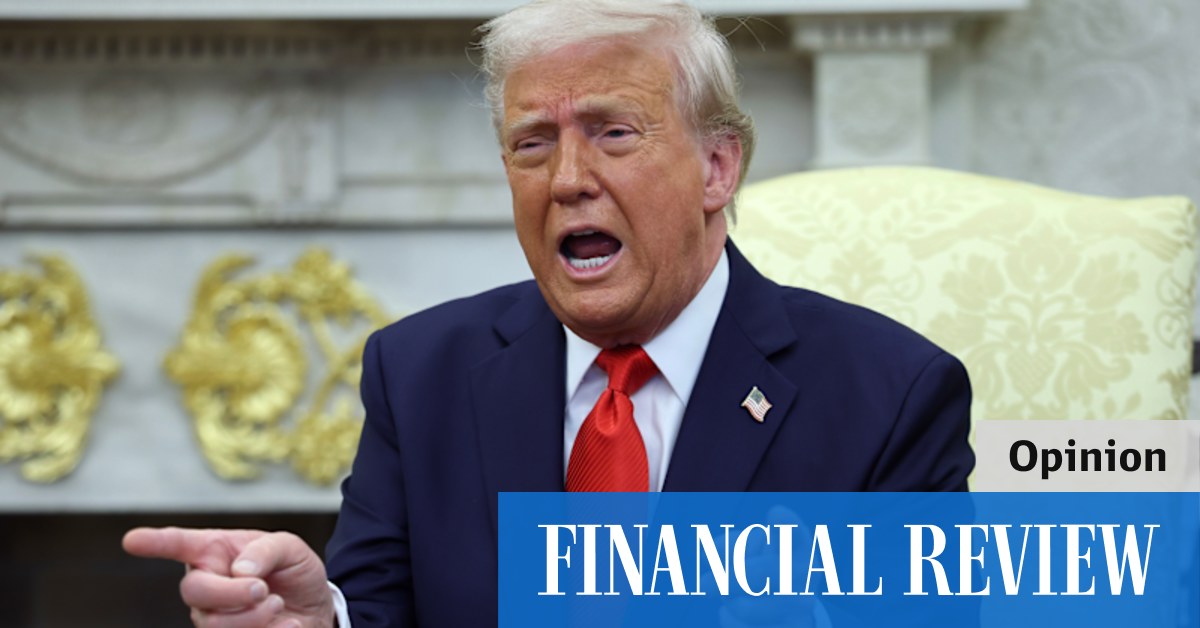Trump's Trade War Failure: China's Winning Strategy
Donald Trump's much-vaunted trade war with China, launched in 2018, ultimately failed to achieve its stated goals. While initially touted as a decisive blow against unfair trade practices, the protracted conflict resulted in significant economic disruption for both nations, with China emerging as the more resilient and strategically adaptable player. This article analyzes the key factors contributing to the trade war's failure and explores China's winning strategy.
The Trump Administration's Objectives: A Missed Target
The Trump administration's primary objectives in initiating the trade war were threefold:
- Reduce the US trade deficit with China: This was a central argument, focusing on the perceived imbalance in bilateral trade. The administration aimed to force China to buy more American goods and services.
- Protect American industries and jobs: Specific sectors, particularly agriculture and manufacturing, were targeted, claiming that Chinese competition was unfairly undermining domestic production.
- Address intellectual property theft: The administration alleged widespread theft of American intellectual property by Chinese companies, demanding stronger protection for American innovations.
While the administration imposed tariffs on hundreds of billions of dollars worth of Chinese goods, these actions ultimately proved insufficient to achieve these ambitious goals.
China's Strategic Response: Adaptability and Resilience
China’s response to the trade war was characterized by a remarkable degree of strategic adaptability and resilience. Key elements of their strategy included:
- Diversification of Trade Partners: China actively sought to diversify its export markets, reducing its reliance on the US market. This allowed them to mitigate the impact of US tariffs.
- Internal Market Focus: Increased investment in domestic consumption and infrastructure projects helped cushion the economic blow of reduced exports to the US.
- Technological Self-Reliance: The trade war accelerated China's efforts towards technological self-reliance, particularly in key sectors like semiconductors and artificial intelligence. This long-term strategy positions China for future economic dominance.
- Strategic Patience: China demonstrated remarkable patience, weathering the economic storm and avoiding escalation that could have harmed its long-term economic prospects. They strategically responded to US actions, without engaging in tit-for-tat escalation.
The Economic Fallout: Who Really Won?
The economic consequences of the trade war were substantial for both countries. While the US experienced disruptions in supply chains and increased costs for consumers, the impact on China was arguably less severe. China's diversified economy and strategic reserves allowed it to absorb the economic shock better than anticipated.
Furthermore, the trade war inadvertently benefited some sectors within China, accelerating domestic technological development and reducing dependency on foreign technology.
The long-term consequences remain to be seen, but the available data suggests that China’s strategy of adaptation and diversification proved more effective in mitigating the negative impacts of the trade war.
Lessons Learned: A Cautionary Tale
The Trump administration's trade war with China serves as a cautionary tale. The complexities of global trade and the interconnectedness of the global economy highlight the limitations of simplistic protectionist measures. China’s response demonstrated the importance of long-term strategic planning, economic diversification, and technological innovation in navigating global economic challenges.
The trade war's ultimate failure underscores the need for a more nuanced approach to international trade, one that prioritizes collaboration and mutually beneficial agreements over confrontational tactics.
Conclusion: China's Strategic Victory
While the trade war didn't result in a clear victor in the short term, China's strategic adaptability, coupled with the US's less effective approach, suggest that China ultimately gained a significant strategic advantage. The long-term implications of this trade war will continue to unfold, but the initial evidence strongly suggests that China's winning strategy was based on resilience, diversification, and a long-term vision. The US, on the other hand, suffered economic disruption and failed to achieve its stated objectives. This highlights the need for more sophisticated and carefully considered trade policies in the future.

